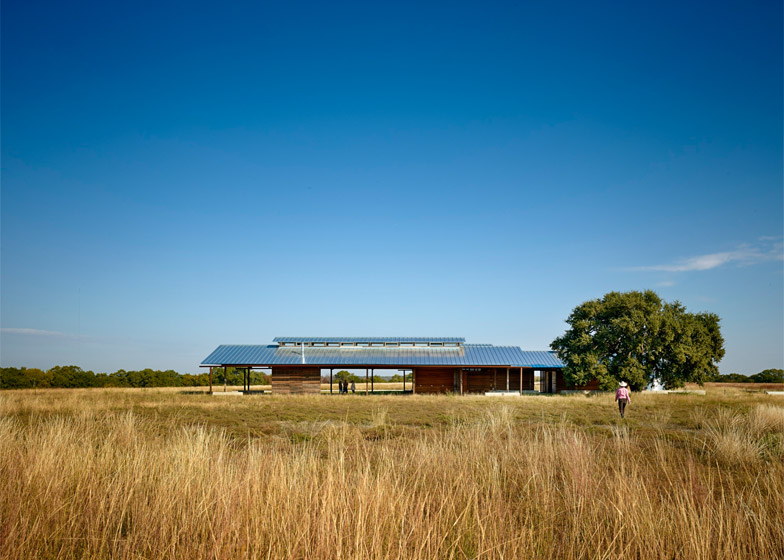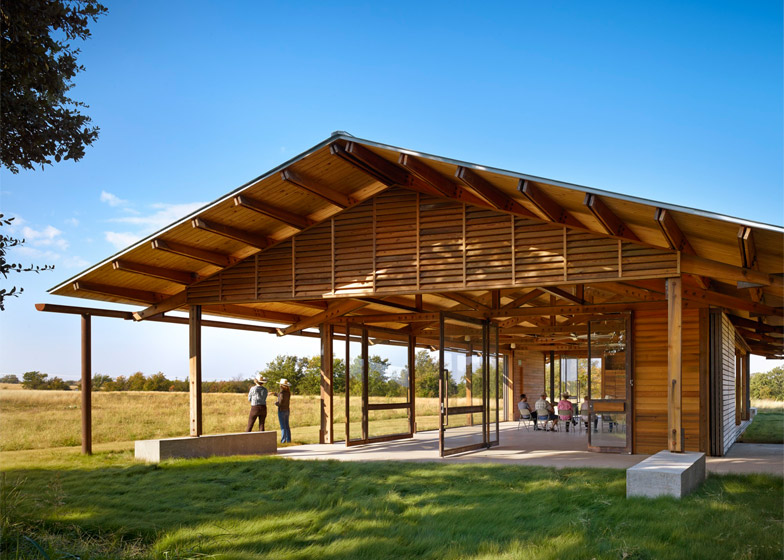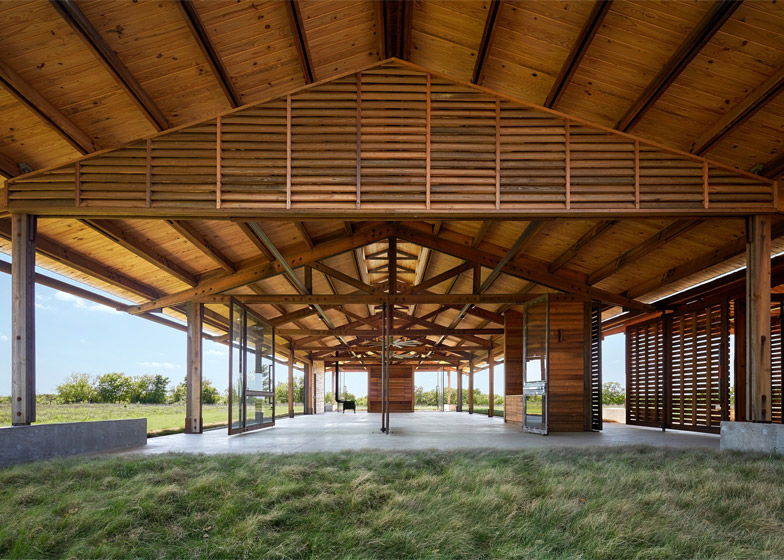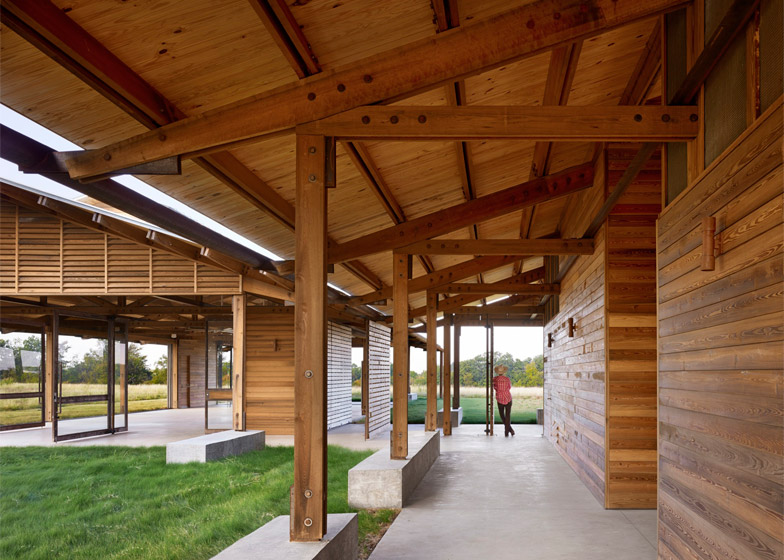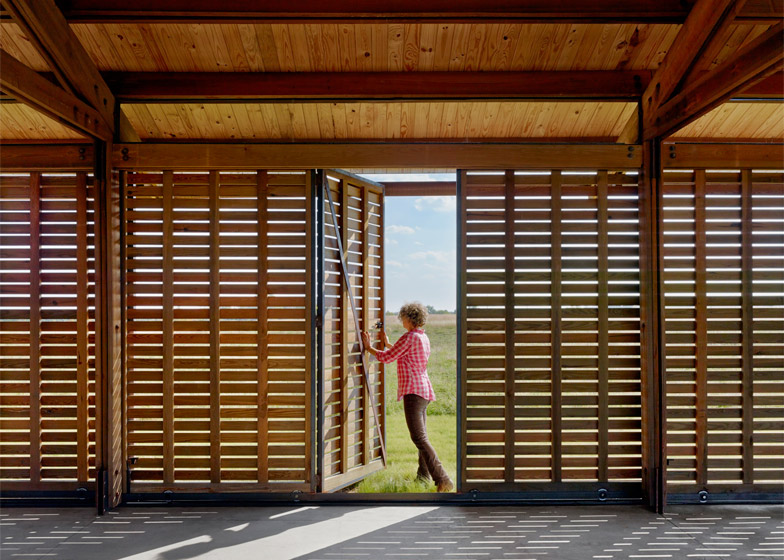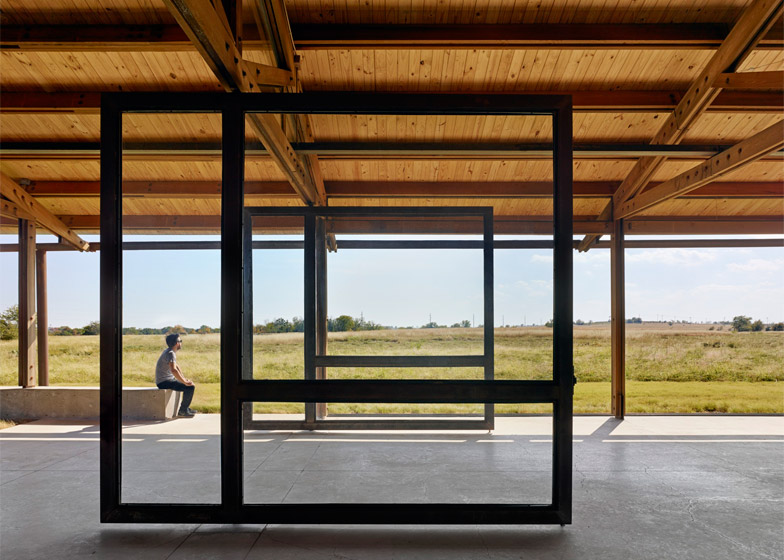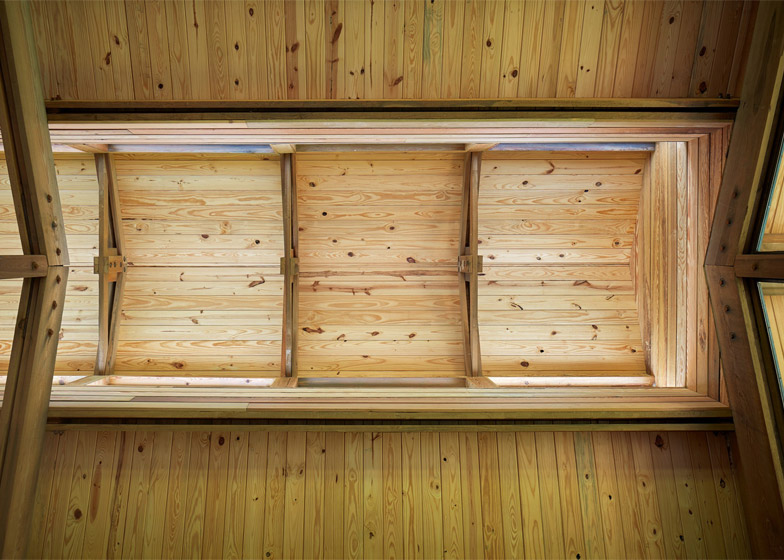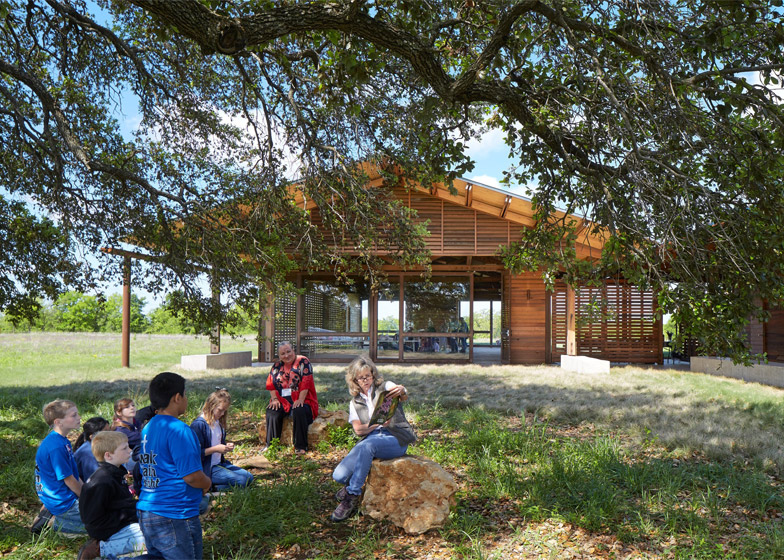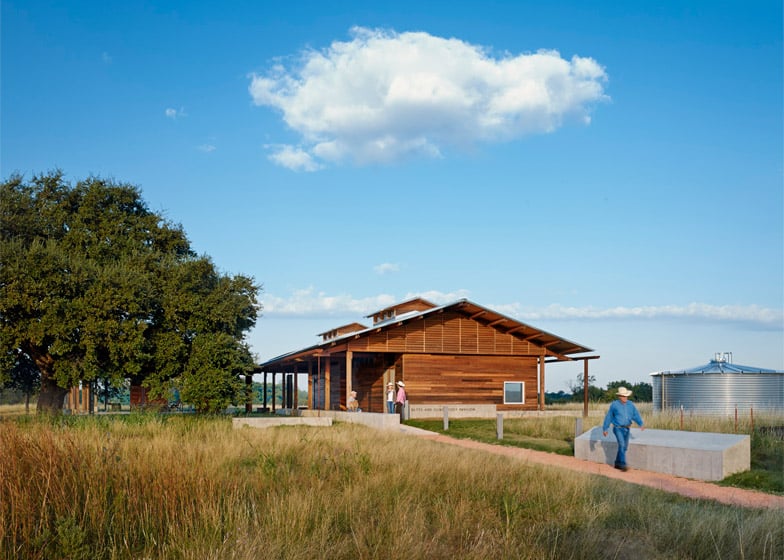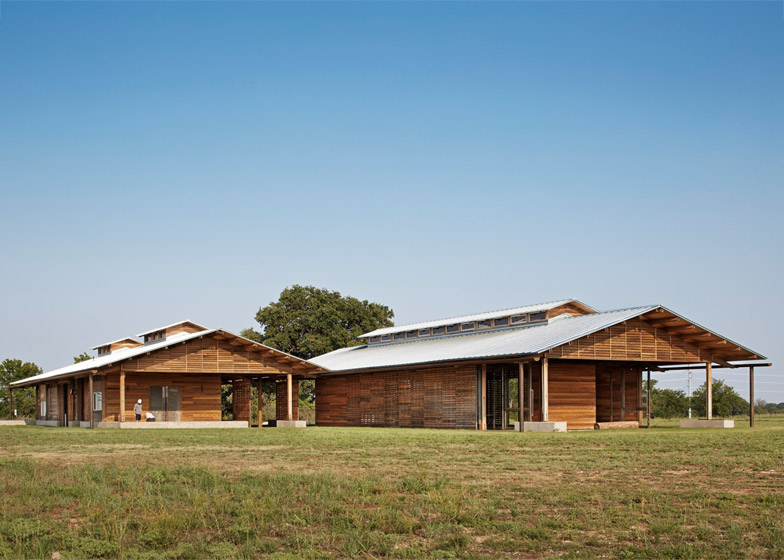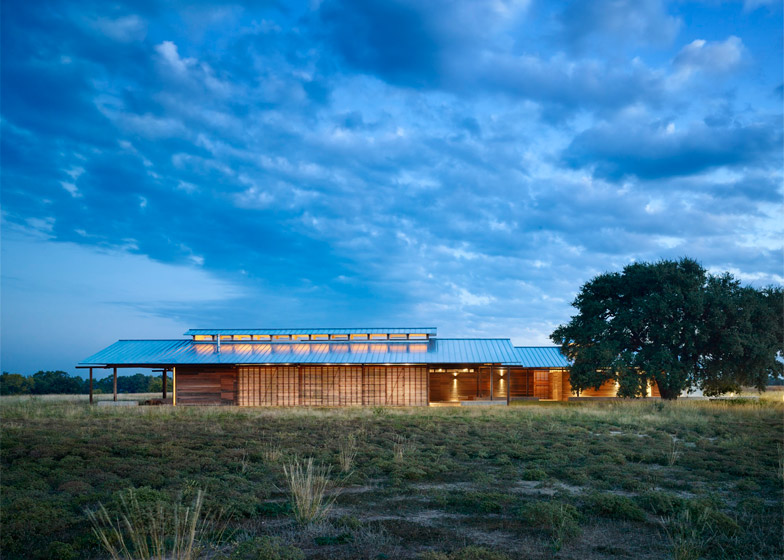This visitors centre and education pavilion in Texas was designed by Lake Flato Architects to be one of the most sustainable structures in the state, but also to reference its Southwestern context (+ slideshow).
The 5,400-square foot (502 square metres) open-air Josey Pavilion consists of two barn-like wooden structures linked by a porch. The low-slung volumes hug the prairie landscape and most of the walls open out for cross ventilation.
Located in Decatur, it serves as an education space for the Dixon Water Foundation, an environmental group that works to protect watersheds and promotes sustainable ranching and agriculture.
All of the storm water is managed on-site, and Lake Flato designed a sculptural gutter in rusted steel with a concrete trough to create a water feature between the two buildings.
The inside of the metal half-tube is painted bright blue, though the vivid colour can only be glimpsed through the water hole.
The Josey Pavilion is the state's first project to meet the Living Building Challenge standards of sustainability.
According to project architect Tenna Florian, its strict requirements for materials were the most difficult aspect of realising the project. "There are good reasons for this building programme to be called a challenge, it is incredibly challenging," she told Dezeen.
Materials must be non-toxic, with nothing on the standards' "red list," and they must be locally sourced. All the exposed framing and siding is Long Leaf Pine reclaimed from the bottom of the rivers and bayous of the Gulf Coast, timber which had been sunk during shipping from the past 100 or more years of the logging trade.
A total of 186 materials were used on a project – a low number for a building of this size – all of which had to be carefully vetted.
The project also combines passive sustainable strategies with high technology to meet zero energy targets. Solar panels provide all the electricity for the structure.
Rooftop cupolas run the length of the building, allowing indirect daylight into the centre of the space and hot air to escape.
The two structures are sited in relation to a pair of large trees to take advantage of shade and frame views of the landscape.
Lake Flato is one of the most prominent firms in Texas, and is know for its sensitivity to local climate and culture.
"As a firm that has grown to design projects nationwide, we consistently continue to seek inspiration from the context of each individual region where our work is located," Florian said. "Josey Pavilion is no exception to this and its form speaks to the local vernacular characteristic of the region."
"Designing Josey to meet the rigorous Living Building Challenge standards further reinforces that design reflective of its own particular place and crafted from a palette of regional materials can be celebrated for both its beauty and ecologically responsibility," she added.
A number of prominent architects from the US and abroad are currently working on projects in Texas, including Kengo Kuma, who is designing a twisting tower in Dallas, and Steven Holl, who is adding to the Museum of Fine Arts in Houston.
Photography is by Casey Dunn.

